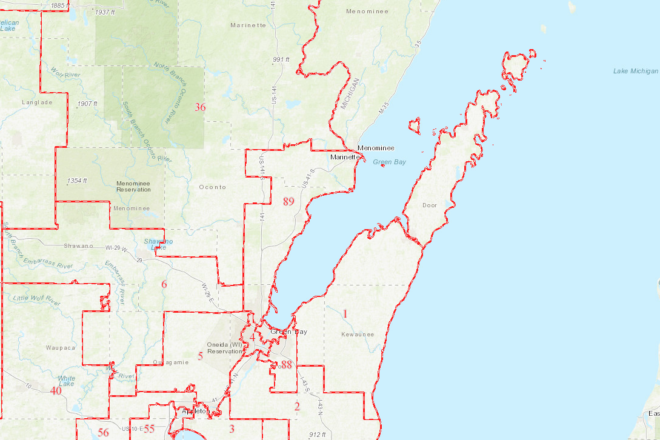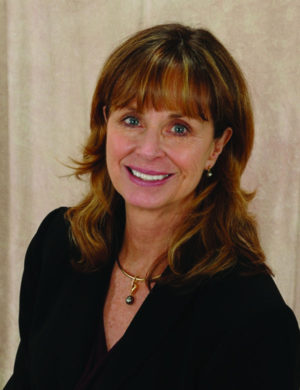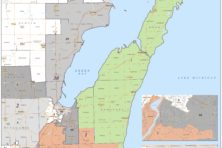Walker Ordered to Call Special Elections
- Share
- Tweet
- Pin
- Share

Amy Phimister, a Sturgeon Bay woman who was one of the eight plaintiffs to bring suit against Gov. Scott Walker regarding special elections for two empty legislative seats, said she was “ecstatic” to learn that a Dane County judge ruled Thursday that Walker has a “plain and positive duty” to call the elections rather than wait until the November election to fill the seats.
Judge Josann Reynolds, a 2014 judicial appointee of Walker, ruled that Walker must call for special elections for the 1st Senate District and the 42nd Assembly District by 12 pm March 29, and the elections are to be held within 11 weeks.
“I find the plaintiffs do have a current and clear legal right,” Reynolds ruled.

Judge Josan Reynolds
The seats belonged to Republicans Frank Lasee of De Pere and Rep. Keith Ripp of Lodi, both of whom stepped down in December to take higher paying jobs in Walker’s administration.
State law says that legislative vacancies that occur before the second Tuesday in May in an election year “shall be filled as promptly as possible by special election.”
Walker and Attorney General Brad Schimel argued that did not apply in this case because the seats were vacated in 2017, not 2018.
Reynolds said that interpretation of the law was “absurd in its application” and that the law in this case was clear.
“For the life of me, I cannot reconcile the incongruity between Gov. Walker’s administration’s very vocal and consistent policy advocating for strict constructionism and the position taken by the attorney general in this case involving the most basic constitutional guarantee,” Reynolds said.
The case was brought by a group connected to former Democratic U.S. Attorney General Eric Holder on behalf of several voters who live in the vacant legislative districts.
Plaintiff Alvin Meyer, who lives in the 1st Senate District, said he was happy with the ruling.
“Why shouldn’t we have a state senator?” Meyer said. “Somebody resigns, quits or dies, you fill the job. Is the view that the role of the legislator is so insignificant that we don’t need one for a year?”
Walker had argued that because the Legislature was expected to finish its business early in 2018, there was no need to fill the seats before the general election in November.
But Reynolds said Walker had regularly called special sessions during his tenure as governor, including last week as she was working on the framework for her opinion.
Reynolds said it was reasonable to assume that Walker might call another special session in 2018, and “very conceivable” that the Legislature might have to address a decision handed down by the U.S. Supreme Court in Wisconsin’s landmark redistricting case.
Democrats have argued Walker was avoiding the special elections because he was afraid that Republicans might lose the seats. That happened in the special election for Wisconsin’s 10th Senate District in western Wisconsin, when Sen. Patty Schachtner, D-Somerset, won a surprise victory in a district that President Donald Trump won by 17 percentage points.
“I’m glad to see the courts uphold the constitutional right for Wisconsin residents to be represented,” said Senate Minority Leader Jennifer Shilling, D-La Crosse. “Gov. Walker is clearly intimidated by the thought of losing more power when voters go to the polls.”
Spokespeople for Walker’s office and the state Department of Justice both said they were consulting on how to proceed following the judge’s ruling.
Wisconsin Public Radio contributed to this report.


